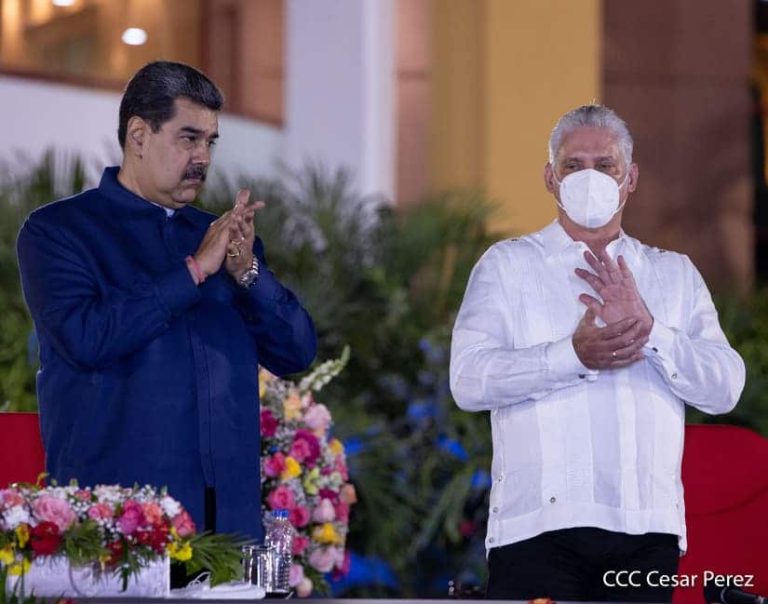20 de enero 2022

Children of Exile: The Births “Sowing Hope” in the Camp of Nicaraguan Farmers

PUBLICIDAD 1M
PUBLICIDAD 4D
PUBLICIDAD 5D
The power struggle between the great global powers isn’t about the supremacy of socialism or capitalism anymore, nor about Marxism versus neoliberalism

Within Latin American public opinion, there are at least two recognized ways of speaking about a “new Cold War”, in allusion to the current conflicts between the US and NATO on the one hand, and Russia and China on the other. There are those who start with the thesis that the Cold War never ended for Latin America but continues today in the tensions dividing Washington and Europe from Moscow, Beijing, Caracas, Havana and Managua.
But there are also those who think that we’ve been living in a new phase of global history since the 90s. This group views many of the conflicts as playing out in a new world context, but with values and practices inherited from the past.
The second line of reasoning seems to me more accurate, but any effort to unlock the logic of the first argument is also worthwhile.
It’s clear that the power struggle between the great global powers is no longer about the supremacy of socialism vs capitalism, or Marxism vs. neoliberalism. Russia and China are no longer socialist systems, although the latter country is ruled over by a Communist Party. Neither are Venezuela or Nicaragua socialist countries. Only large parts of the Cuban system continue to follow a state-centered socialist model.
It’s natural that those who are fervent members of the minority socialist and communist parties that remain in Latin America and the Caribbean see the world as a conflict between socialism and capitalism. It’s not as natural for followers of non-Marxist leftist associations, which are the most common in the region, to conceive of contemporary international relations that way.
In translating the international order into the dichotomies of the Cold War, some attribute to the rival powers of the West an ideological orientation they don’t possess. Not only that, those regional actors increasingly subordinate ideology to geopolitics, in a variation that runs counter, but isn’t that different, from those from within the Western powers who promote policies hostile to leftist governments in the name of the old anti-communism.
A few days ago, Sergei Ryabkov, Russia’s Deputy Foreign Minister, didn’t discount the possibility of constructing military infrastructure in Venezuela and Cuba, in order to confront the dispute with NATO over Ukraine’s possible membership. No Cuban or Venezuelan high-level politician reacted against the proposal. Neither of the two governments expressed any discomfort over the Russian Deputy Minister’s declarations.
Why? The most plausible hypotheses are that neither government felt at all uncomfortable because it’s in their favor to serve as Russia’s geopolitical chess pieces. Either that, or they prefer to silence their criticism – even if they consider Ryabkov’s statements inappropriate – to preserve Moscow’s support. What’s certain is that in the official Cuban, Venezuelan or Nicaraguan press, Vladimir Putin and Xi Jinping are never criticized. They’re as untouchable as those countries’ own rulers.
This article was originally published in Spanish in Confidencial and translated by Havana Times
Archivado como:
PUBLICIDAD 3M
Historiador y ensayista cubano, residente en México. Es licenciado en Filosofía y doctor en Historia. Profesor e investigador del Centro de Investigación y Docencia Económicas (CIDE) de la Ciudad de México y profesor visitante en las universidades de Princeton, Yale, Columbia y Austin. Es autor de más de veinte libros sobre América Latina, México y Cuba.
PUBLICIDAD 3D